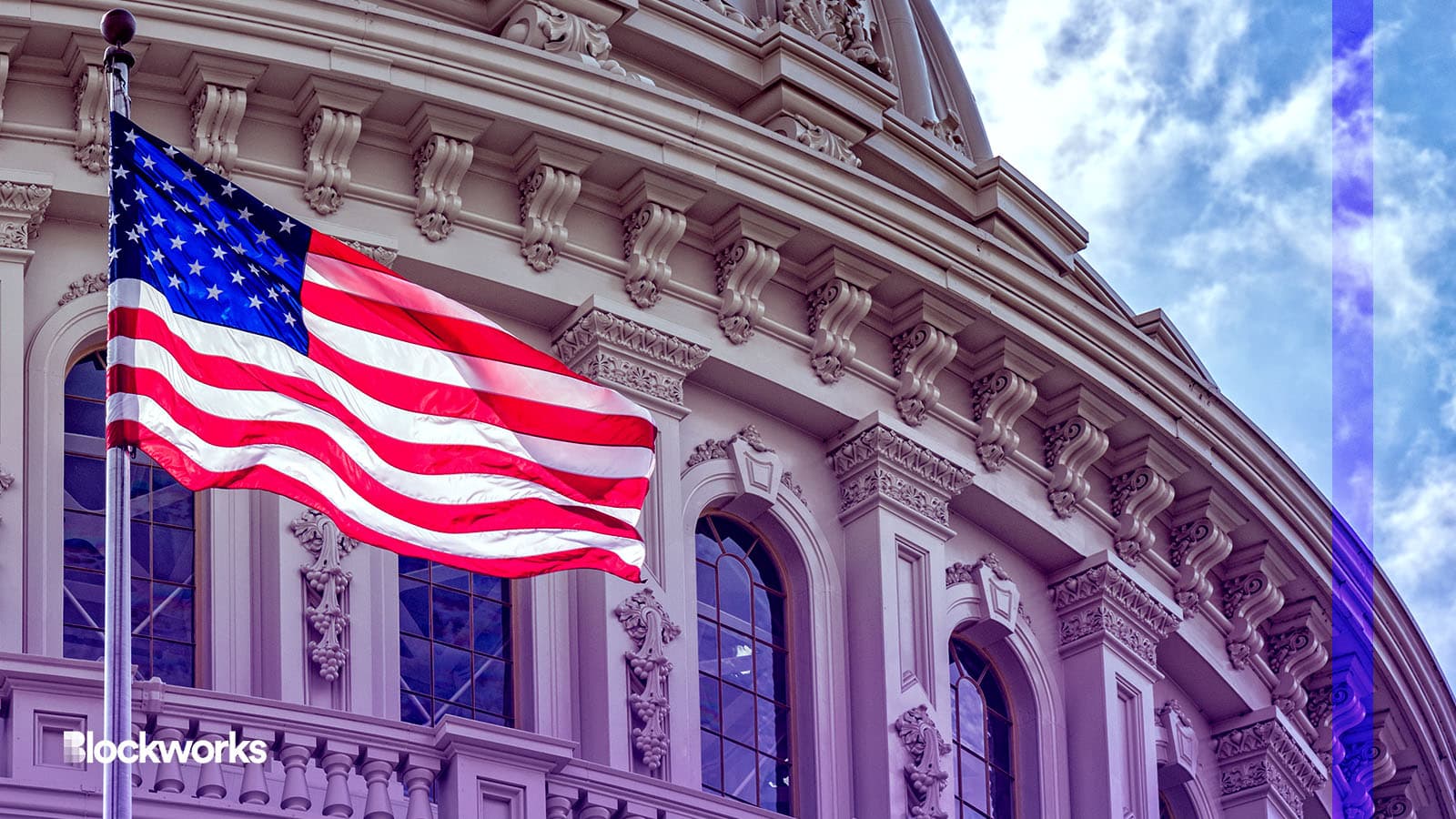Stablecoin Policy Progress Impeded by Partisan Disagreements
Democrats slammed the current Republican-led draft bill for stablecoin legislation, but the parties agree on some points

Source: Shutterstock / Andrea Izzotti, modified by Blockworks
A draft of the long-awaited bipartisan stablecoin legislation Congress members have been promising hit the wire last week, but top Democrats say the bill is nothing like what was discussed.
House Representatives met last week to discuss stablecoins and hear from expert witnesses about their role, safety and stability. The current draft bill was released by Republicans on the Subcommittee on Digital Assets ahead of the hearing.
Subcommittee Chair Rep. French Hill (R-Ark.) hailed the legislation as a bipartisan effort that began last fall.
But Democrats beg to differ. The draft “in no way recommends the final work on stablecoins by negotiations between the two of us,” Rep. Maxine Waters (D-Cali.) said, referring to unresolved conversations with Hill. Democrats will have to “start from scratch,” she added.
Hill responded by saying he welcomes collaboration on the bill and stablecoin framework.
As the hearing progressed, the party lines became more clear. Here is a rundown on where leaders stand when it comes to collaboration on stablecoin policy.
Where cross aisle agreement can be found
Several Subcommittee members brought up the collapse of TerraUSD and Luna and highlighted the need to protect investors and enforce strict reserve reporting requirements.
Customer funds should also not be commingled, Republicans and Democrats agreed unequivocally.
There also seems to be some bipartisan agreement that US Dollar dominance should not be undermined, by a stablecoin or otherwise, although there is some disagreement about how stablecoins may impact USD.
House Republicans and Democrats may not agree on how to get there, but both sides of the aisle are calling for some sort of policy to make it through soon.
Where party lines remain strong
Some Democrats maintain the need for more guidelines around who can issue stablecoins.
“These programs are typically limited to banks who are heavily regulated and that is for good reason,” Rep. Stephen Lynch (D-Mass.) said. “It is the danger of allowing shadow banking products, particularly stablecoins, to issue deposits like products without FDIC insurance. So I strongly believe we need to separate crypto assets from our banking system, and this [draft] bill does just the opposite.”
Others in the party, like Rep. Ritchie Torres (D-NY), counter that stablecoin issuers are nothing like banks; if there are no lending services provided, there is no need to require issuers to be licensed banks.
Lawmakers also disagreed about privacy and KYC policies around stablecoins. Rep. Bill Foster (D-Illi.) suggested regulators would need access to each wallet owner’s identity in order to effectively oversee the industry.
Rep. Warren Davidson (R-Ohio) on the other hand, said private and permissionless blockchains are essential.
Congress members also had a difficult time getting on the same page about state versus federal policy. Rep. Torres said he would not be inclined to support any legislation that undermined New York’s current stablecoin regulatory policy.
What’s next
Bipartisan talks between current Chairman of the House Financial Services Committee Patrick McHenry (R-NC), and Rep. Waters began last year, but the two were unable to move their efforts out of committee.
Any bill will ultimately have to get through the Senate as well, and if Senate Banking Committee Chair Sherrod Brown (D-Ohio), doesn’t take interest, the legislation will likely die.
Crypto investment vehicles are “speculative products run by reckless companies — we know that’s true,” Sen. Brown said during a February hearing after the fallout of FTX.
“It would require, certainly, a change in approach for the Banking Committee to move forward with markup,” Sen. Cynthia Lummis (R-Wyo.) said, during an appearance in DC to discuss her bipartisan crypto bill.
Rep. Waters has not yet released her own draft or proposal for a new stablecoin bill to counter what Republicans unveiled last week. The draft bill has also not yet been introduced on the House floor.
Get the news in your inbox. Explore Blockworks newsletters:
- The Breakdown: Decoding crypto and the markets. Daily.
- 0xResearch: Alpha in your inbox. Think like an analyst.






